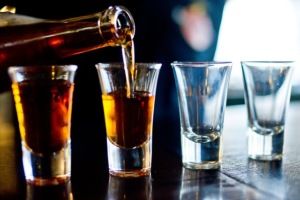News
Health authority wants to remove drunkenness from gymnasium fresher parties
This article is more than 3 years old.
Sundhedsstyrelsen recommends drinks should not have an alcohol percentage of more than 5 percent

Photo: Pixabay
The Sundhedsstyrelsen health authority wants to discourage students from drinking by banning alcohol at school parties, and they have sent a letter out to principals at gymnasiums in Denmark.
Stricter rules proposed
In 2020 it was revealed by the WHO that Danish teens consume the most alcohol in all of Europe in their age group, and Sundhedsstyrelsen is trying to change this status by urging schools to help change the drinking culture amongst young people in Denmark.
It recommends that study trips should become 100 percent free of alcohol and that schools should only sell or provide drinks at parties with an alcohol percentage of less than 5 percent.
According to Sundhedsstyrelsen, every year 1,649 people under the age of 20 are hospitalised due to acute alcohol poisoning, and the teenage drinking culture leads to higher risks of violence, accidents and unwanted sex.
There is also a large amount of peer pressure related to drinking in gymnasiums as drinking is a part of most social events, and this is not helped by the school being the main provider of alcohol at these events.
Taking the first step
The first school to implement a ban on alcohol at school events is Nørresundby Gymnasium.
It is common for its students to be able to purchase alcohol on school grounds during school parties. However, Søren Hindsholm, the principal at Nørresundby Gymnasium, has now put a stop to this.
“Changing a culture takes time, but we are now slowly beginning to. We think that at the first party for the first years they should get to know one another without being under the influence of alcohol,” he told DR.
Students find the ban unrealistic
Even though Nørresundby Gymnasium is doing its best to make the first party of the year a fun experience by serving a variety of non-alcoholic drinks, students think the ban is unrealistic in the long term.
By banning alcohol, it will only stop young people from drinking in a safe environment and may cause more students to drink irresponsibly without the presence of adults.
Furthermore, not every school is following the recommendation as several have reported that it was given out too late after plans had already been set in stone.
Nevertheless, these institutions remain open to the idea of reducing the amount of alcohol available in the future.










































